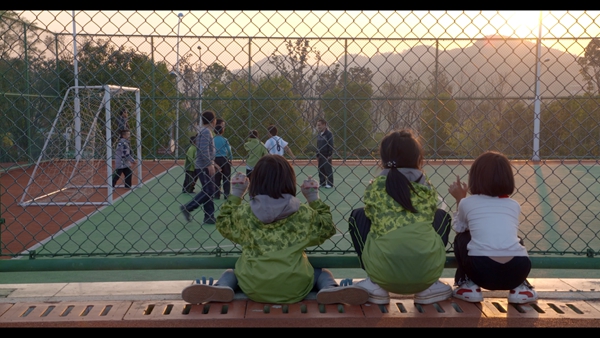

"I'm really impressed by people's struggles. Although government has offered many favorable policies to help people get used to their life in the new environment, such efforts cannot solve problems met by every individual. For example, Yang has difficulty finding a job in the city, so he always wanted to return to his former life in the mountain, sometimes he even took his son to visit his former residence recalling the past," says Meng.
"Local people view the mountain as their root, so when they leave the root they feel like giving up something they are born with. But they know the city can provide their children with better education, so they still decide to move. It shows both people's emotions for their hometown and emphasis on children's cultivation," he adds.
Meng also considered the necessity of the government urging people to move when he saw their struggles, but his confusion disappeared when he visited Yang's former residence in the deep mountain. "We hiked in the mountain for three hours from the town to get there. It was very poor and without any facilities for daily life. They used to spend a whole day going to the town for doctors, which was really inconvenient. But now they only need to go downstairs and can buy medicine.
"If they didn't move, then their offspring would live in the same way. So the policy really brought Yang's family a big change, which may influence the future of the family. Yang didn't know what he would encounter when he moved, but good or bad, he had to go with it. It was a very important decision," says Meng.
According to Jiao, this has been his group's ninth project about the country's poverty alleviation efforts.
"We have made so many works about farmers, and our way of shooting is settling down in the countryside. When farmers plant crops, we plant stories. When farmers harvest, we also make our work," says Jiao.
Critic Yang Lang highlights Jiao's efforts recording farm life. "Jiao's group has been recording stories of farmers in the past three decades. Their works tell us that the changes in agriculture, countryside and farming are systematic, and they really matter to our future generations."